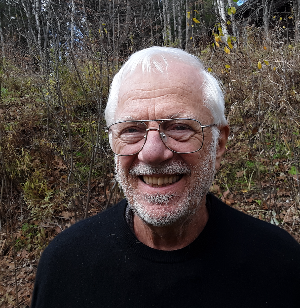The One you Feed

In order to get through the day, our brain needs an order in which to function. From day 1 we are bombarded by sensation. Lest the stimuli be totally chaotic, we begin to organize the sensations, creating associations of the various elements, and organizing for ourself an environment we can handle. Inevitably and inescapably, our representation of the world differs from the world itself, even though we are unaware of the difference. We really believe that what we experience is what is, and through the process of bias confirmation, whereby we gravitate to people who agree with our worldview, we and our group separate ourselves off from others who live in a different psychological realm, viewing them with suspicion and condescension. Reason is subsumed to emotion, and whatever bonds provide the glue that holds society together can explode at any time. This is why democracy is fragile.
Would-be dictators are aware of this fragility, and create chaos whenever possible to disrupt the order that holds society together. Chaos, confusion and division pit one person or group against another, appealing both to our need for psychological order in our own mind, and also to our suspicion of those who live with a different perspective. Lies and subversion of faith in science create confusion as to what is real and true, eviscerating the commonality that we all share, sowing division and suspicion. Although we all live in a world of our own and group creation, the soil in which the weed of chaos most easily grows is the soil least tended. Take away dignity, education, secure employment and hope for the future, and the seedbed for sowing chaos is ready for a good harvest. Large parts of America have been readied for the dissolution of democracy and the acceptance of authoritarianism.
The Wall is a perfect symbol of this process. A wall offers both the safety of our cocoon as well as keeping out those who threaten us. It is a powerful image that for the new Republican party protects true Americans from invading southern hordes, portrayed as infected rapists bringing disease and defiling the women of our culture. It protects the mythical heartland from evil east coast elite, led by Jewish bankers, and from west coast hippies epitomized by the perverted state of California. It protects white suburbia from inner city Black ghettoes. The Wall need not be a physical barrier, of course. It is manifest also as bank redlining, school segregation via charter schools, gerrymandering and a hundred other means to separate, isolate, and denigrate the other.
In addition to the overt manifestations of the Wall, there are also separations that are more psychological than physical. As a consequence, literally anything can become divisive. Red hats. Refusing covid vaccination. Refusing to wear a mask. All of these are symbolic of belonging to one particular ordering of the world and the rejection of all others. Individual identity is interwoven with group identity, and the group, in turn, finds itself in its symbols. A force, be it an individual or a party, that wants to become the dictator, will take advantage of this symbolism and sow the seeds of chaos whenever and wherever it is possible. There will be no end to new dispute.
In short, as human beings, we require an ordered worldview in which we can live our daily life, an order that we in part create in conjunction with partners of like mind. But there is no logical necessity that the Wall is the necessary end product. There is no inescapable reason why human beings need become divided and protective. There is another way, a way that is based on recognizing that the world we have created for ourself is limited in scope and accuracy. We must not hide in our cocoon and be threatened by all else. We need to be open to learning from others who have different experience. To coin the phrase, we need to build bridges, not walls.
Is it possible? The answer is and has to be yes. Certainly that is what the great teachers have always said. But it is not a once-and-done affair. Learning to overcome our shortsightedness is a continual process. There will always be another would-be dictator, ready to sow chaos and appeal to our need for order and fear of the other, but s/he need not succeed, and integral to the battle is turning the seedbed of chaos into a seedbed of hope. As long as poverty is allowed to be and the rich and powerful are permitted full reign, ruthless authoritarianism will remain a constant danger.
The story of the Garden of Eden is a story about building walls, locking ourself up in our own little world, fearful of all that is the “other”, facilitating chaos. And the story of the resurrection is a story about overcoming that wall, opening ourself to reach out in love to all. Jesus had taught and shown that there can be an attitude of love just as there can be an attitude of hate, and even though he was crucified, his disciples knew this love as abiding truth, and so they continued in that path even though Jesus was gone. It was a path, with twists and turns, not a destination.
This recognition of the continuing psychological battle and the possibility of a worldview of love rather than of hate is a common universal awareness, not limited to any one teacher or culture. In American native culture we hear from Sitting Bull:
“Inside of me there are two dogs. One is mean and evil and the other is good and they fight each other all the time. When asked which one wins I answer, the one I feed the most.”
This quote is similar to a Cherokee legend in which an old Cherokee is teaching his grandson about life.
“‘A fight is going on inside me,’ he said to the boy.
‘It is a terrible fight and it is between two wolves. One is evil – he is anger, envy, sorrow, regret, greed, arrogance, self-pity, guilt, resentment, inferiority, lies, false pride, superiority, and ego.’ He continued, ‘The other is good – he is joy, peace, love, hope, serenity, humility, kindness, benevolence, empathy, generosity, truth, compassion, and faith. The same fight is going on inside you – and inside every other person, too.’
The grandson thought about it for a minute and then asked his grandfather, ‘Which wolf will win?’
And the old Cherokee simply said, ‘The one you feed.’”

